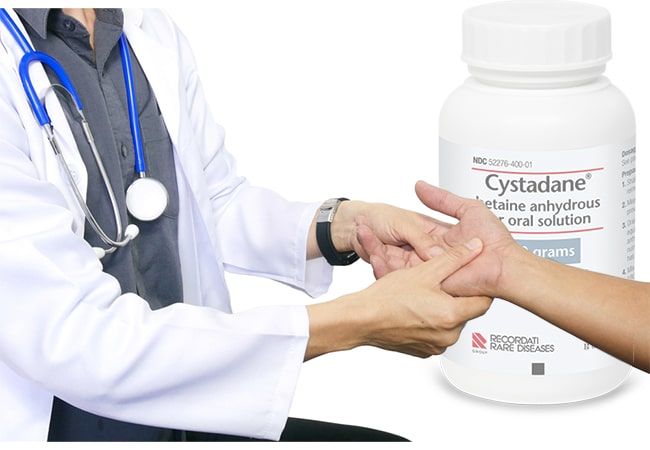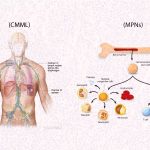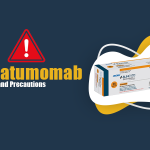Cystathionine beta-synthase (CBS) deficiency, also known as classical homocystinuria, is a rare genetic disorder that impacts the body’s ability to process certain amino acids properly. This condition can lead to various health complications, making it crucial for early diagnosis and appropriate management.
Prevalence:
CBS deficiency is a rare disorder, with estimates suggesting it affects roughly 1 in 200,000 to 335,000 individuals worldwide. However, its prevalence can vary significantly among different populations. For example, some regions have higher rates because of genetic factors, while others may have lower incidence rates.
- Qatar: The prevalence in Qatar is estimated at 1 in 1800, maybe the highest in the world.
- Ireland: Prevalence is reported to be as high as 1 in 65,000.
- Germany: Molecular genetic screening of a normal population estimated the prevalence of classic homocystinuria at 1 in 17,800.
- Norway: Molecular genetic screening of newborns employing a panel of six pathogenic variants estimated the prevalence of classic homocystinuria at 1 in 6400, based on the heterozygosity rate
Signs and Symptoms:
The symptoms of CBS deficiency can be quite diverse and may vary from minimal to serious. Common symptoms include:
- Developmental Delays: Children with CBS deficiency often experience delays in reaching developmental milestones, such as walking and talking.
- Intellectual Disability: Cognitive impairments and learning difficulties are common in affected individuals.
- Skeletal Abnormalities: Patients may develop skeletal issues such as osteoporosis, a condition that weakens bones, making them more prone to fractures.
- Eye Problems: Dislocation of the lens (ectopia lentis) is a hallmark symptom. This can lead to visual impairment or blindness if left untreated.
- Thromboembolic Events: An increased risk of blood clots, which can lead to life-threatening conditions such as stroke or pulmonary embolism.
- Behavioral Issues: Some individuals may exhibit behavioral problems, including anxiety and depression.
Causes:
CBS deficiency is caused by mutations in the CBS gene, which provides instructions for producing the enzyme cystathionine beta-synthase. This enzyme plays a crucial role in the metabolism of the amino acid homocysteine. When the CBS enzyme is deficient or dysfunctional due to genetic mutations, homocysteine accumulates in the blood, leading to the various symptoms associated with the disorder. CBS deficiency follows an autosomal recessive inheritance pattern, meaning that an individual must inherit two copies of the mutated gene (one from each parent) to develop the condition.
Diagnosis:
Early diagnosis of CBS deficiency is critical to managing the disorder effectively. Diagnostic methods include:
- Newborn Screening: In many countries, newborns are screened for a range of metabolic disorders, including CBS deficiency, shortly after birth. This early screening can help identify affected infants before symptoms develop.
- Blood Tests: Elevated levels of homocysteine and methionine in the blood can indicate CBS deficiency. Genetic testing can confirm the diagnosis by identifying mutations in the CBS gene.
- Urine Tests: The presence of homocysteine in the urine can also be a marker for the condition.
Treatment and Management:
Managing CBS deficiency involves a combination of dietary modifications, supplements, and medicines to reduce homocysteine levels and prevent complications. Key treatment strategies include:
- Dietary Restrictions: A low-methionine diet can help reduce homocysteine levels. Foods high in methionine, such as meat, dairy, and eggs, are limited.
- Vitamin Supplementation: Vitamin B6 (pyridoxine), vitamin B12, and folic acid supplements are often prescribed to help metabolize homocysteine. Some patients respond well to high doses of vitamin B6, which can improve enzyme function.
- Betaine: Betaine, supplied under the brand name Cystadane, is a therapeutic drug that helps lower homocysteine levels by converting it to methionine through an alternative pathway.
- Regular Monitoring: Frequent blood tests are necessary to monitor homocysteine levels and adjust treatment as needed. Regular check-ups with healthcare providers ensure that potential complications are detected and managed early.
Conclusion:
Cystathionine beta-synthase (CBS) deficiency is a rare but serious genetic disorder that requires early diagnosis and proper management. By understanding its prevalence, symptoms, causes, diagnosis, and potential treatment options, patients and clinicians can work together to improve outcomes and quality of life (QoL) for those affected by this condition.
Reference:
https://www.cystadane.com/
What are the main symptoms of cystathionine beta-synthase (CBS) deficiency?
CBS deficiency symptoms include developmental delays, intellectual disabilities, skeletal issues, and vision problems like lens dislocation. Recognizing these symptoms early is vital for effective treatment and quality of life improvements.
How is CBS deficiency diagnosed in infants?
CBS deficiency can be diagnosed through newborn screening and blood tests that measure homocysteine and methionine levels. Early genetic testing can confirm CBS gene mutations, ensuring timely treatment for affected infants.
What dietary changes are recommended for CBS deficiency?
A low-methionine diet, limiting foods like meat, dairy, and eggs, helps manage CBS deficiency by reducing homocysteine buildup. Diet, combined with vitamin B6 and folic acid supplements, supports metabolic balance and reduces complications.
Can I buy Betaine (Cystadane) online in India?
Yes, you can buy Betaine (Cystadane) online in India through platforms like the Ikris Pharma Network (IPN), which provides access to trusted sources for this essential CBS deficiency medication. Always consult a healthcare provider before purchasing.
What is the role of Indian Pharma Network (IPN) in accessing CBS deficiency treatments?
Indian Pharma Network (IPN) facilitates access to essential CBS deficiency treatments, including Betaine. They help patients source genuine medications, supporting ongoing treatment and management of homocysteine levels in India.
Where can I buy Betaine (Cystadane) for CBS deficiency in India?
Betaine (Cystadane) for CBS deficiency can be made available on request. Send your inquiries to buy Betaine (Cystadane) in Delhi, Gurgaon, Noida, Mumbai, Bangalore, Chennai, Hyderabad, Kolkata, Pune, Ahmedabad, Jaipur, Lucknow, Kanpur, Nagpur, Indore, Surat, and Bhopal. Ikris Pharma Network (IPN) offers access to this essential medication, ensuring safe and reliable delivery.






